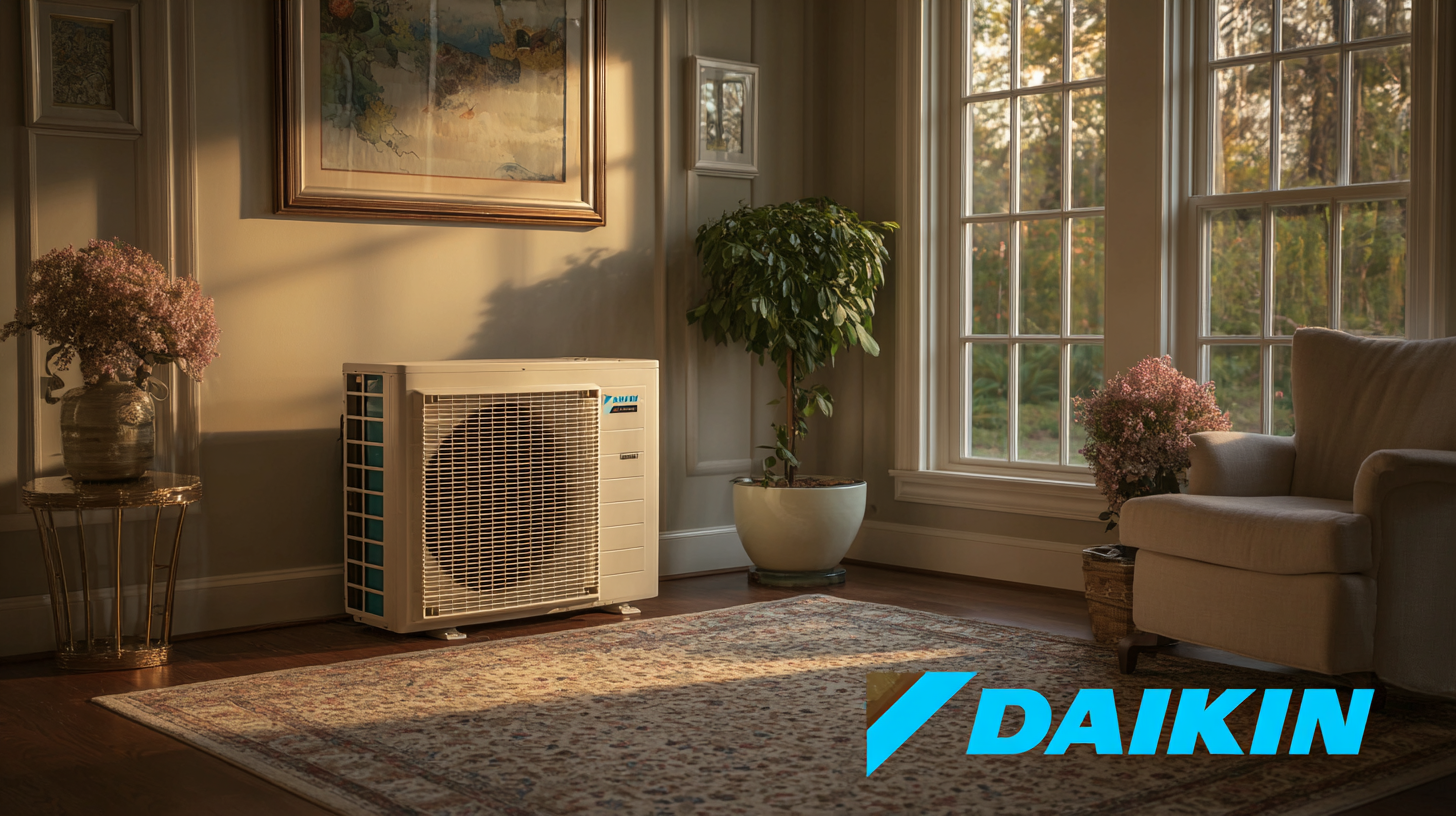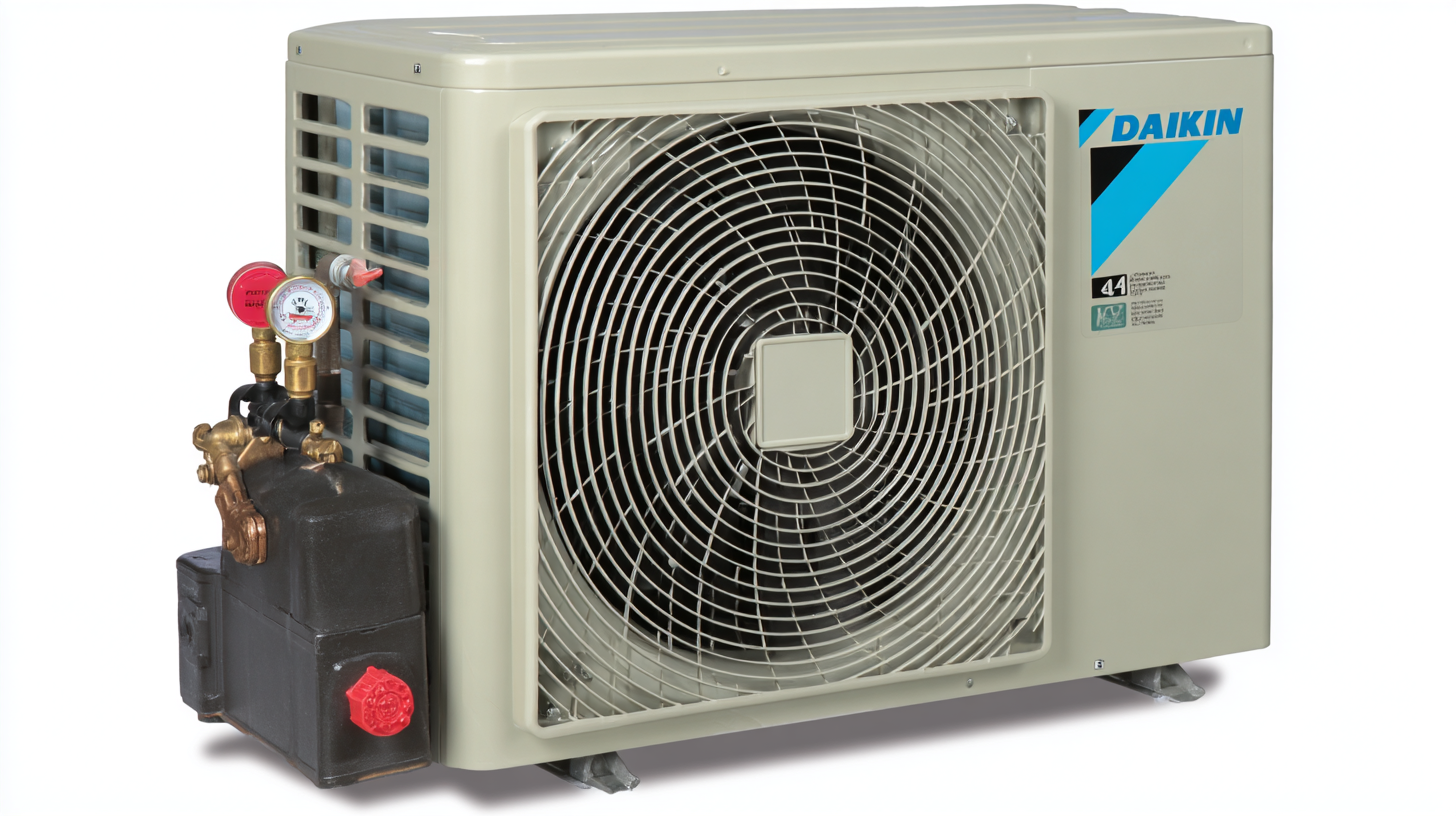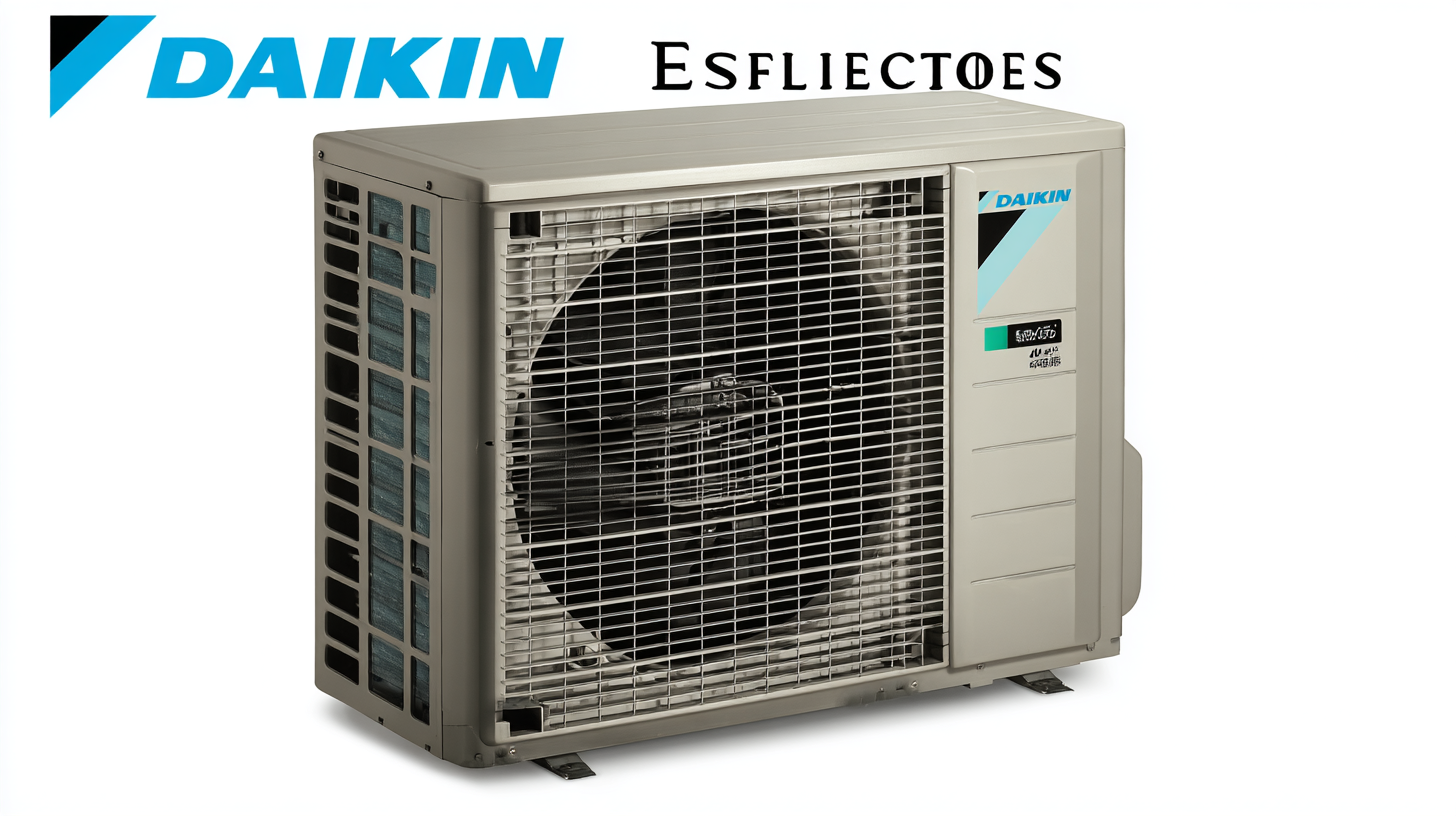


As the demand for energy-efficient heating solutions rises, homeowners are increasingly turning to innovative technologies to enhance their comfort while minimizing energy consumption. Daikin Heat Pump systems have gained considerable popularity due to their advanced performance, flexibility, and eco-friendliness. According to a recent report by the International Energy Agency, heat pumps can reduce energy consumption for heating by up to 50% compared to traditional systems, offering both cost savings and lower carbon emissions. Furthermore, the global heat pump market is projected to reach $89.6 billion by 2025, underscoring the growing reliance on these systems for home climate control. In this blog, we will explore seven essential tips for choosing the best Daikin Heat Pump for your home, ensuring that you make an informed decision that contributes both to your comfort and the sustainability of the environment.

When selecting a Daikin heat pump for your home, several critical factors must be considered to ensure optimal performance and comfort. First and foremost, the size of the heat pump is essential, as it directly influences efficiency and effectiveness. According to the U.S. Department of Energy, an improperly sized unit can lead to increased energy consumption by up to 30%. Therefore, it is imperative to perform a thorough load calculation based on your home's specific characteristics, such as square footage, insulation levels, and local climate.
Another important aspect is the energy efficiency rating of the heat pump. The Seasonal Energy Efficiency Ratio (SEER) and Heating Seasonal Performance Factor (HSPF) ratings provide insights into the unit's efficiency. A study from the Air Conditioning, Heating, and Refrigeration Institute indicates that units with higher ratings can save homeowners between $300 and $500 annually on energy bills. Additionally, consider the warranty and service options available for the heat pump, as these factors can significantly impact long-term satisfaction and performance, providing peace of mind throughout the unit's life span.
| Factor | Description | Importance Level |
|---|---|---|
| Sizing | Ensuring the heat pump is the correct size for your home can prevent inefficiency. | High |
| Energy Efficiency Rating | Look for models with high energy efficiency ratings to save on utility bills. | Very High |
| Climate Compatibility | Choose a heat pump designed to work well in your specific climate conditions. | High |
| Noise Level | Consider the decibel rating to ensure it operates quietly. | Medium |
| Reliability | Research brands and models known for their durability and reliability. | Very High |
| Installation Requirements | Ensure that you factor in installation costs and requirements when budgeting. | High |
| Warranty and Support | Check the warranty and available customer support options for peace of mind. | Medium |
When selecting a Daikin heat pump for your home, understanding efficiency ratings is crucial for achieving optimal comfort. Daikin heat pumps, known for their advanced technology, often come with varying efficiency ratings such as SEER (Seasonal Energy Efficiency Ratio) and HSPF (Heating Season Performance Factor). Higher ratings indicate superior energy efficiency, which translates to lower utility bills and reduced environmental impact. As heating and cooling market trends show a growing preference for high-end systems, choosing a heat pump with elevated efficiency ratings can greatly enhance the value of your investment.
Additionally, high-efficiency heat pumps adapt better to varying climate conditions, making them ideal for homeowners who experience cold winters or hot summers. The latest developments in air source heat pumps highlight their ability to provide consistent indoor temperature control while utilizing renewable energy sources, making them a sustainable choice. With a rising trend towards integrating smart technologies in HVAC systems, selecting a Daikin heat pump that offers connectivity features can further optimize your home’s energy use and comfort levels, ensuring peace of mind and enhanced living conditions year-round.
This bar chart illustrates the efficiency ratings (COP) of various heating systems, highlighting how different models can impact home comfort and energy savings.
When evaluating heat pump options for your home, it's crucial to compare installation costs against long-term savings. The global heat pump water heater market is projected to reach a valuation of $22.4 billion in 2024, with expectations to surge to $36.3 billion by 2032, indicating strong market growth and increased consumer demand for energy-efficient solutions. Understanding the initial investment in heat pumps, typically ranging from $4,000 to $10,000 depending on the model and installation, can help you gauge affordability in the context of potential energy savings.

Long-term savings are where heat pumps truly shine. According to industry reports, homeowners can see energy bill reductions of up to 50% compared to traditional heating systems. This is largely due to the high efficiency of heat pumps, which can transfer more energy than they consume. By calculating the return on investment over time, such as the reduced utility costs and possible tax incentives, homeowners can make informed decisions that enhance their comfort and sustainability while maximizing financial savings.
When selecting a Daikin heat pump for your home, evaluating the supplier's reputation and support is crucial. A reputable supplier not only offers quality products but also ensures your investment is protected with reliable customer service. Research the supplier's background by checking customer reviews and testimonials to understand their reliability and service efficiency. Look for suppliers who have experience in the industry and knowledge of Daikin products specifically, as this expertise is invaluable when it comes to installation, maintenance, and troubleshooting.
In addition to reputation, consider the level of support offered by potential suppliers. Ideal suppliers should provide comprehensive warranties, easy access to replacement parts, and prompt technical assistance. A solid support structure is especially important for complex heating and cooling systems like heat pumps, where professional guidance can make a significant difference in terms of performance and longevity. Therefore, take the time to evaluate various suppliers, as a strong partnership with a dedicated support team can enhance your overall experience and comfort with your Daikin heat pump.
When selecting a heat pump for your home, the climate and size of your residence play crucial roles. In warmer regions, a heat pump with a higher SEER rating can better manage cooling demands, while in cooler climates, finding a model that efficiently provides heating at lower temperatures becomes essential. Be sure to assess local weather patterns to choose a unit that maintains comfort year-round.

Additionally, consider the size of your home when selecting a heat pump. A unit that is too small may struggle to keep your home comfortable, leading to increased energy costs and wear on the system. Conversely, an oversized unit can cause rapid cycling, wasting energy and reducing indoor air quality. Calculate the square footage of your living space and consult professionals to determine the appropriate capacity for your selected heat pump.
Lastly, keep energy efficiency in mind. Investing in a model with advanced technology can lower operational costs and benefit the environment. Look for features such as smart thermostats and variable speed compressors, which allow for better control and optimal performance tailored to your household needs.
